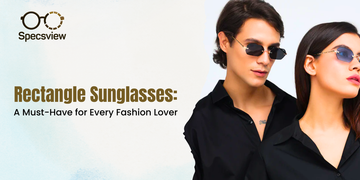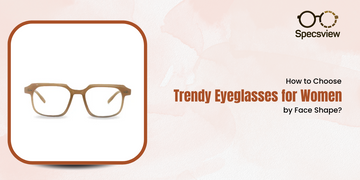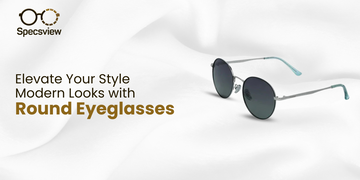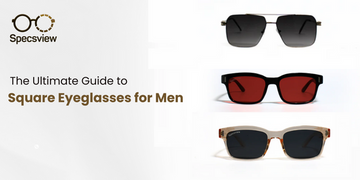UV Eye Protection
Sunglasses are essential eyewear. They reduce brightness and protect your eyes and vision in any season. More than just fashion accessories, sunglasses protect your eyes from ultraviolet (UV) rays, which are harmful rays from the sun. Both UVA and UVB rays can damage the eye’s surface, cornea, and lens, leading to cataracts, macular degeneration, and other serious eye conditions.
When learning how to choose sunglasses, remember that they are not just about style but about protecting your eyes from UV damage.
Selection Tips for Sunglasses
To keep your eyes healthy, remember these tips when choosing sunglasses.
100% UV Protection is a Must
When you buy sunglasses, check for a tag or sticker that says they block 100 percent of UV light. Some labels may also say “UV absorption up to 400nm,” which means the same thing as full UV protection. Do not settle for less than that.
Darker sunglasses don't always mean they give more UV protection
When searching for sunglasses, remember that darker lenses don't necessarily mean they are safer for your eyes. Only sunglasses that offer 100% UV protection provide the safety your eyes require.
Polarized lenses cut down on glare, but they don't block UV rays
Polarized lenses help reduce glare from shiny surfaces like water or roads. They make activities such as driving, boating, or golfing more enjoyable by reducing reflections. However, polarization alone doesn't protect against UV rays. Some polarized lenses also have UV protection. Look for sunglasses labeled with both polarized and UV protection to ensure your eyes stay safe from the sun's harmful rays.
Check the quality of lenses while buying
You can make sure that non-prescription sunglasses have good lenses by doing these steps:
- Find something with a pattern, like a tiled floor.
- Hold the glasses at a distance from your face and cover one eye.
- Move the glasses slowly from side to side, and then up and down, while looking through the lenses.
- If the lines in the pattern stay straight, the lenses are good. If the lines look wavy or move around (especially in the middle of the lens), try a different pair of sunglasses.
Larger sunglass lenses are better
Choose sunglasses with large lenses to shield your eyes from sun damage. Oversized or wraparound styles can help block UV rays from the sides.
Lens color doesn't affect UV protection
When choosing sunglasses, keep in mind that colored lenses like amber or gray don't block more sunlight. However, lenses in brown or rose colors can enhance contrast, which is helpful for athletes in sports like golf or baseball.
Mirror finishes are metallic coatings on regular sunglass lenses. They reduce the amount of visible light entering your eyes. But they may not completely protect you from UV light, so don't assume they do.
Also, very dark lenses might look stylish, but they don't always block more UV rays.
Consider impact protection when buying sunglasses
While no lens is completely unbreakable, plastic lenses are less likely to break than glass ones. Most sunglasses without a prescription use plastic lenses.
For sports, sunglasses made from polycarbonate plastic are recommended because they are very strong. However, if they don't have a special coating, they can scratch easily. Usually, polycarbonate lenses come with a coating that helps prevent scratches.
Price doesn't determine protection
You don't need expensive sunglasses to be safe and work well. Sunglasses from the drugstore that say they block 100 percent UV rays are better than designer sunglasses that don't protect your eyes.
Times when Sunglasses don’t help
Regular sunglasses cannot shield your eyes from certain sources of light like tanning beds, snowy areas, and arc welding. You need special lens filters for these situations. Also, sunglasses won't protect you if you look directly at the sun, even during a solar eclipse. Doing so can cause serious pain and damage to your eyes, including your retina, which could lead to permanent loss of central vision. Always avoid staring at these light sources without proper eye protection.

If you're unsure whether older sunglasses still block UV light, there isn't clear research on whether UV protection decreases over time. However, you can have your sunglasses tested. Take them to an optical shop with a UV light meter to check how well they protect against UV rays. This blog will surely help you the next time when you’re facing the issue of how to choose sunglasses that would protect my eyes.





